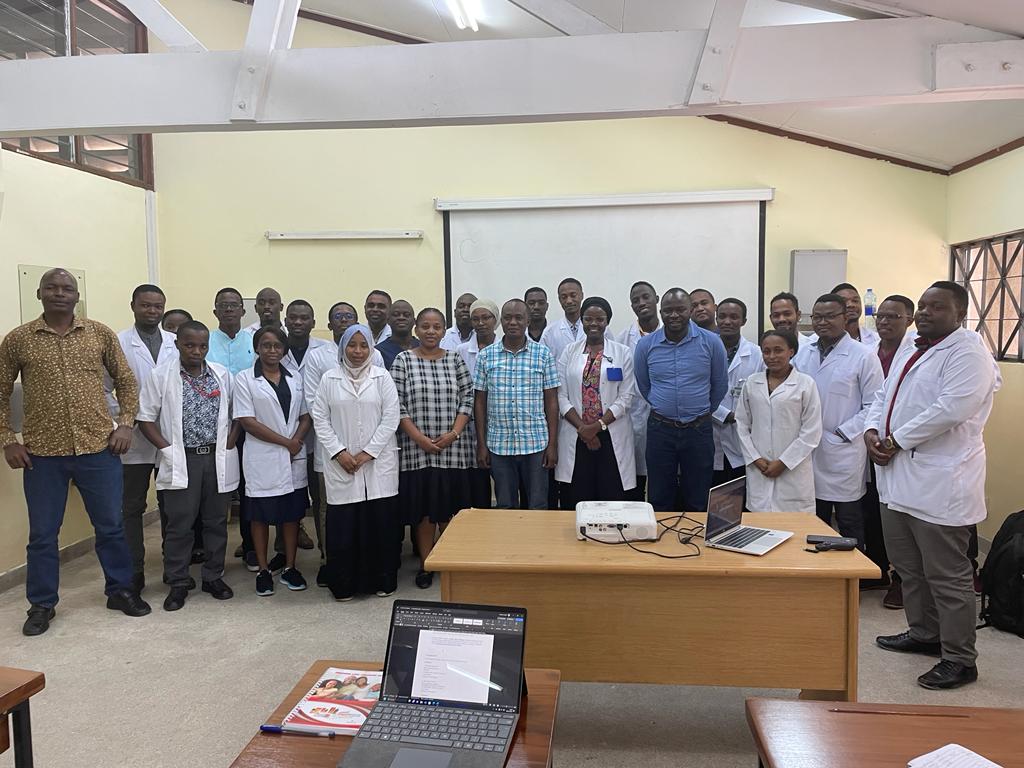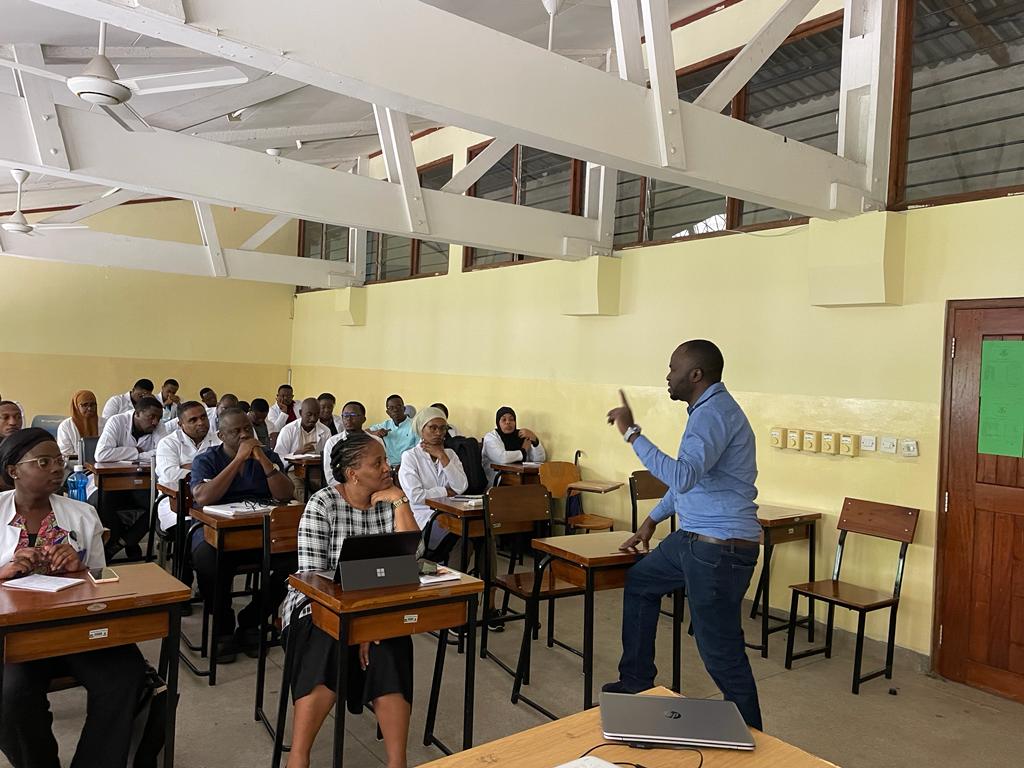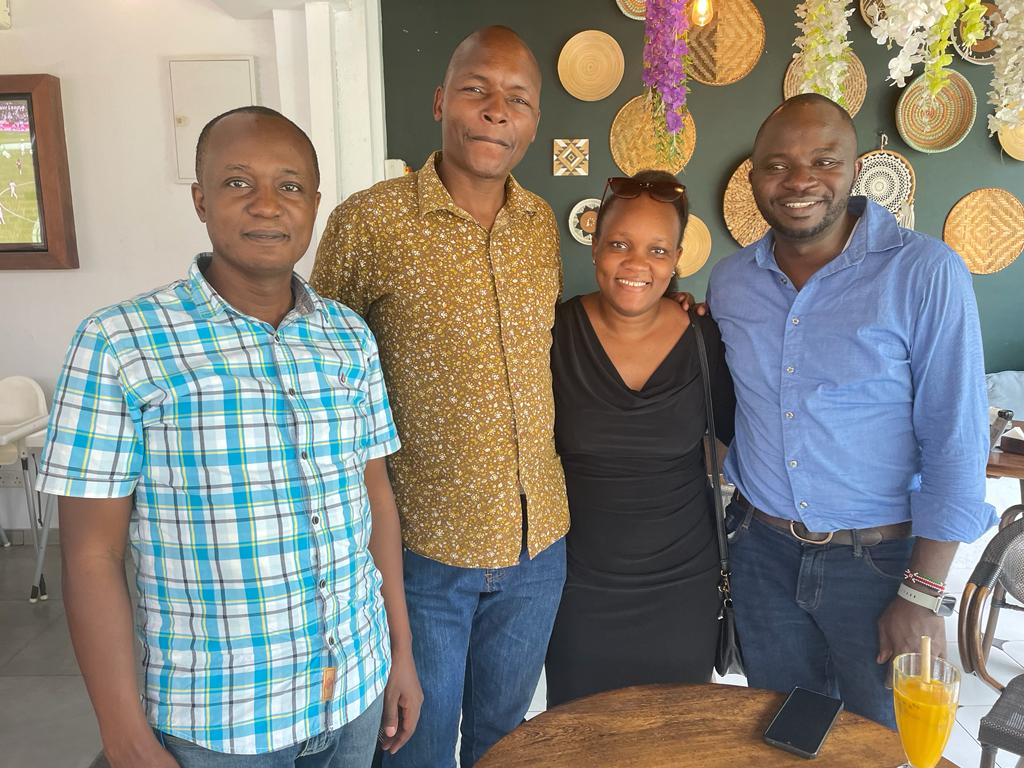
Driven by a shared commitment to advancing scientific knowledge in the fight against HIV, two Sustainable Development for HIV Health (SD4H) fellows, Erick Ndenga and Dan Omollo, joined forces with three other UCGHI GloCal Fellows led by Dr. Willybroad Massawe, to host a first-of-its-kind two-day research training session at Muhimbili University, Tanzania on December 7th - 8th, 2023. What began as chance encounters between fellows in the corridors of Mission Hall at UCSF in San Francisco, California, is blossoming into a transformative mentorship initiative that the fellows are christening "One Love East Africa Fellows" (O'LEAF).
The focus of this groundbreaking initiative was to empower early career researchers, particularly medical specialists and residents in otolaryngology, with the necessary skills to seize and excel in research opportunities. The training session witnessed the active participation of six medical specialists and 50 master’s students, spanning from first to third-year residents at Muhimbili University. The three dynamic facilitators, Dr. Willybroad Massawe, Dan Omollo, and Erick Ndenga, imparted invaluable knowledge in research methods overview, research analysis planning, and project management in research.

The core facilitators worked with several collaborators from Muhimbili University, including Dr. Deo Mtei, Dr. Caroline Ngimba, and Dr. Nashivai Kivuyo, whose contributions added significant depth and breadth to the training program. Their dedication and expertise were instrumental in ensuring the success of the event. Moreover, the head of the ENT Department at Muhimbili University, Dr. Aslam Nkya, a GloCal alum from 2019-2020, also helped foster a conducive environment for research and education and played a pivotal role in making the training session a reality.
This collaborative training session signifies a milestone in the global effort to train early career professionals in research methodologies, showcasing the power of collaboration and interdisciplinary knowledge-sharing in the scientific community. The fellows, Erick and Dan, are enthusiastic about the potential impact of this groundbreaking initiative on the future landscape of HIV research in Tanzania and beyond. What they find particularly exciting about this initiative is that it exemplifies the potential that emerges when like-minded individuals come together to effect positive change. The organic collaboration that started as casual meetings in the corridors of Mission Hall evolved into a serious endeavor that could significantly influence the landscape of research in East Africa.
As Erick reflects on celebrating this milestone, he notes, “we are filled with optimism about the future impact of O'LEAF. The enthusiasm and commitment demonstrated by the participants, facilitators, and supporters underscore the potential for long-lasting change in research practices and opportunities in East Africa, Africa and indeed in Global Health.”

